Mozambique: Terrorist couple surrenders to authorities in Mocímboa da Praia - AIM report
Mozambique: A night of hardship for the displaced

Photo: O País
It took them hours to walk from communities in Chiúre district, Cabo Delgado, all the way to Eráti district in Nampula province. Many carried bundles of household items, some basic supplies like dried cassava, and still others even took live chickens with them.
The long marathon of the displaced is a painful one. They walk along National Road Number One (EN1) without a specific destination. They include young children obliged to walk more than 50 kilometres under the scorching sun, as well as women carrying children and babies on this unwanted adventure.
The main village of Eráti is Namapa, and ends up being a likely destination. To get to Nampula from Cabo Delgado, you cross the Lúrio river, with its considerable flow conveying a false feeling that the terrorists will not cross into Nampula, since, as a rule, they do not use conventional routes like the EN1, but rather routes deep in the forest, where the river constitutes more of a barrier.
Many are weakened. Dehydrated bodies overcome by hunger cast adults into a bitter silence. Resting on the ground flanked by their bundles, they impassively see and hear their children crying from hunger.
There is no-one to give them food or water – not the local government and much less non-governmental or civil society organizations. They are left to their own devices.
When night falls on Wednesday (21-02), everyone is left to their fate. The Nacucha Secondary School serves as a temporary shelter – or fails to, as its five classrooms are not enough for so many people.
The only solution is to surrender to the bitterness of a night in the open, without anything to cover their bodies, and at the mosquitoes’ mercy. Twenty to thirty percent of those displaced are children.
A man who identifies himself as a former paratrooper is among those who left the administrative post of Ocua, the target of Tuesday’s latest attack. “From yesterday [understand the day before yesterday] until today, not even porridge for our children. They are almost collapsing (…) As you can see, not even a mosquito net. Do you know what escape from war is like? We don’t take anything with us when we leave,” says Armando Napicaneque.
We left the place around 10 p.m.. The night was dark, with intermittent lightning illuminating the sky from time to time. It was a flash of lightning that announced what would happen hours later, during the early hours of this Thursday: rain.
It was light rain, but enough to wet most of those outside, increasing the suffering of those fleeing the insurgents’ terror.
When the day dawns, it’s time for reflection. The situation of abandonment prevails and Mr. Joaquim Pizai tells his 11-year-old daughter, his wife and sister-in-law to tidy up everything, having made the decision to return to where he came from – the administrative post of Ocua.
“I decided to return because of the suffering. Since I arrived here the day before yesterday, we haven’t had food. It’s better to go back. I called family members who stayed there, and they said they are now free. That’s why we’re heading home,” he relates.
In their group, there are three minors who also joined the long walk. “From here, it will take us about three hours,” the man says, his face the picture of dismay.
After the interview, he politely offers us these last words: “Thank you very much. God bless you.”
We reciprocate with the same affection, and the family disappears towards the horizon, marching along the side of the road on the hot tar.


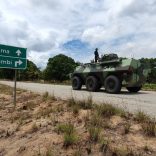
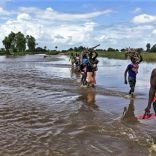
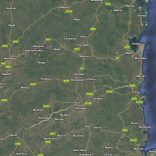

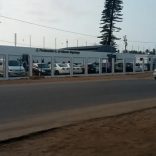
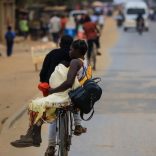





Leave a Reply
Be the First to Comment!
You must be logged in to post a comment.
You must be logged in to post a comment.